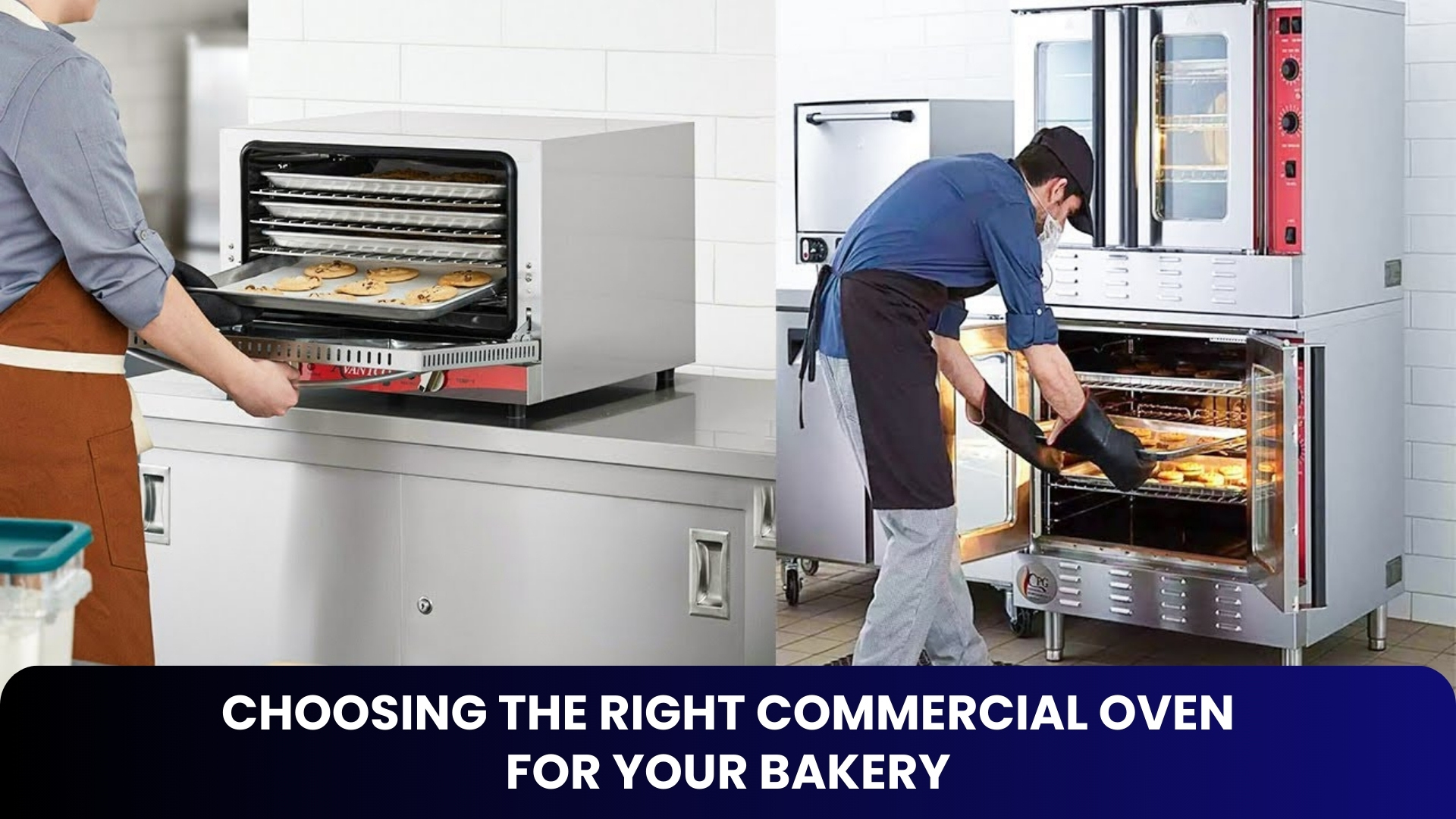Choosing the Right Commercial Oven for Your Bakery
Operating a successful bakery requires having the right equipment, especially when it comes to your commercial oven. The oven you choose can have a major impact on the quality and efficiency of your baked goods. Here are some basic guidelines to keep in mind when selecting commercial ovens for your bakery.
Types of Commercial Ovens
There are three main types of ovens to consider:
Deck Ovens: Deck ovens have separate chambers or decks that allow you to bake multiple trays or racks of products at once. This makes them ideal for high-volume production. Deck ovens heat through convection, conduction, or a combination of both.
Rack Ovens: Rack ovens can accommodate large racks of baked goods. The oven chamber is heated by jets of hot air, providing even and consistent heat. Rack ovens are great for products like breads and rolls.
Revolving Ovens: Revolving ovens use a turntable system to rotate the baked goods through the oven chamber. The rotation allows for very consistent baking. Revolving ovens work well for delicate items prone to hot or cold spots like cookies and biscuits.
Size and Capacity
Think about the quantity and types of baked goods you plan to produce. This will help determine what size and capacity of oven you need. Important factors include:
Overall Cubic Footage: The total interior cubic footage impacts how much you can bake at one time. It also determines what size pans and trays you can use.
Rack Capacity: The number of racks or trays an oven can hold during a single load is crucial for matching your required output.
Pan/Tray Size: The standard pan and tray dimensions an oven can accommodate are vital to have enough flexibility.
Temperature Range: A wider temperature range lets you bake a wider assortment of items. Look for at least 150-650°F.
Electric versus Gas
Commercial ovens are powered either by gas or electricity. Here are the main factors when choosing between the two:
Initial Costs: Electric ovens tend to be more affordable upfront than gas.
Operating Costs: Gas ovens are generally cheaper to operate long-term than electric.
Heat Control: Gas provides very precise and consistent heat with more instant adjustments.
Ventilation: Gas ovens require proper ventilation to the outside.
Maintenance: Electric ovens require less maintenance than gas.
Safety: Gas ovens must be properly installed to avoid risks.
Think about your available utility connections and costs when deciding between gas and electric. Also, consider how important controllable and consistent heat is for your baked goods.
Convection versus Conduction Heating
Ovens use either convection heating, conduction heating, or a combination. Here are the key differences:
Convection: Heated air circulates through the chamber, providing even heat distribution. Best for breads, pastries, and delicate baked goods.
Conduction: Heat radiates from the oven surfaces into the food. Excellent for pizza, biscuits, and crispier baked items.
Combination - Uses both convection and conduction for maximum flexibility with a range of baked recipes.
If you will be baking a wide variety of items, a combination oven is likely the best option. Convection Oven is great for more delicate goods like cakes and cookies, while conduction excels at crisping and browning.
Additional Oven Features
Today's commercial ovens offer some helpful features and settings to improve quality, efficiency, and ease of use. Be sure to look for things like:
Programmable Controls: Allow you to preset multiple stages of the baking process for perfect results every time.
Steam Functions: The addition of steam can improve crust, color, and moisture in items like bread.
Rapid Cooling: Quickly ventilate and cool the oven after batches are complete to maximize throughput.
Digital Displays: Provide alerts, temperature readings, timers, and other vital information clearly and concisely.
Interior Lights: This lets you visually inspect products during baking without disrupting the process.
Telescoping Oven Racks: Smoothly extended to simplify loading and unloading.
Carefully evaluate your needs and menu offerings when considering special features. This will help identify which ones offer the most value for your bakery.
Brand, Warranties, and Support
Be sure to choose a reputable commercial oven brand known for quality and reliability. Check that they offer at least a one-year warranty on parts and labor. Also, verify that local technical service and support are available in case repairs are ever needed. Buying from an established manufacturer is worth the extra assurance it brings.
Give your new commercial oven a chance to prove itself with a thorough bake test. Have staff try out a variety of your products and recipes in the oven before committing to real production. Confirm that your volumes, bake times, quality, and consistency will meet your business needs.
Choosing the ideal commercial oven requires careful thought about your current and future bakery requirements. Taking the time upfront to evaluate the types, sizes, features, and brands available using these guidelines will ensure you find the perfect fit. With the right oven powering production, your baked goods will reach their peak quality and help make your bakery a longtime success.
Choose Texas Restaurant Supply For Commercial Oven
When it comes to commercial ovens, look no further than Texas Restaurant Supply. As a trusted buyer and seller, Texas Restaurant Supply offers a wide selection of high-quality, new, and pre-owned restaurant equipment, furniture, and decor for your establishment. With locations in Grand Prairie and Irving, Texas, we are poised to meet your restaurant supply needs, whether local or nationwide. From individual pieces to complete restaurant inventories, we are here to assist you every step of the way.




Comments
Post a Comment